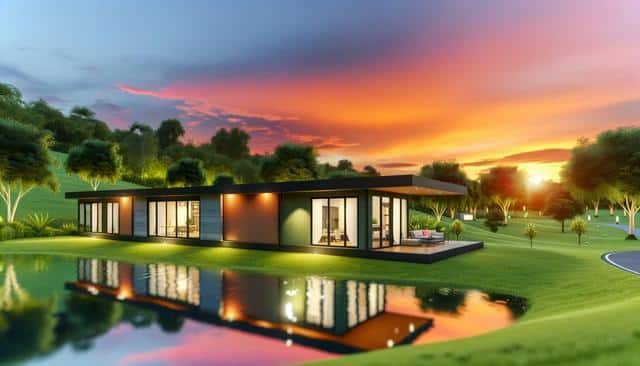The Benefits of Modular Construction
One of the standout advantages of modular homes is their ability to reduce construction timelines significantly. Since components are manufactured simultaneously rather than sequentially, homeowners can expect their homes to be ready in a fraction of the time it takes to build a conventional house. This approach not only speeds up the process but also shields construction from weather-related delays commonly encountered on traditional building sites. Budget-conscious individuals will appreciate that modular homes can be less expensive than custom-built homes due to economies of scale and reduced labor costs. Furthermore, modular homes are designed to meet or exceed building codes and standards, offering peace of mind that safety and durability are on par with conventional homes.
Versatility in Design and Living
Modular homes provide exceptional versatility, accommodating a wide array of personal styles and preferences. Modern modular designs range from compact, efficient spaces to expansive layouts that offer luxury and comfort. With the ability to choose from various floor plans, finishes, and features, homeowners can create a personalized space that reflects their lifestyle and aspirations. The modular approach allows for flexibility in design, enabling the addition of extra modules or customization of existing layouts to suit changing needs. This adaptability is not only practical but can also add significant resale value, appealing to a broad market of potential buyers in the future.
Sustainability and Environmental Considerations
An essential aspect of modular homes is their commitment to sustainability. This method of construction often results in a smaller environmental footprint, thanks to optimized material use and reduced waste. Many manufacturers prioritize eco-friendly practices by utilizing recycled materials and energy-efficient technologies. Modular homes are frequently equipped with features such as solar panels, high-efficiency HVAC systems, and water-saving fixtures, all contributing to a lower carbon footprint. Moreover, the precision of factory-based construction ensures tighter building envelopes, leading to improved energy efficiency and lowered utility bills. Homeowners interested in ‘green’ living will find modular homes to be a well-aligned solution with their environmental goals.
Challenges and Considerations
While modular homes boast numerous benefits, there are still considerations potential buyers need to be mindful of. Site preparation can be more complicated than anticipated, as the land must be surveyed, and foundation work must be completed before modules arrive. Additionally, homeowners should consider the transportation and logistical arrangements required to move large modules from the factory to the site, as this can add to the overall costs. Another factor to consider is financing; although many lenders offer mortgages for modular homes, buyers should confirm specific details and ensure that their financial institution is familiar with modular construction. Comparatively, zoning regulations and building codes can vary widely, so it’s crucial to gain a full understanding of local requirements before proceeding. By addressing these considerations, homeowners can mitigate potential challenges and fully enjoy the many advantages modular homes have to offer.

